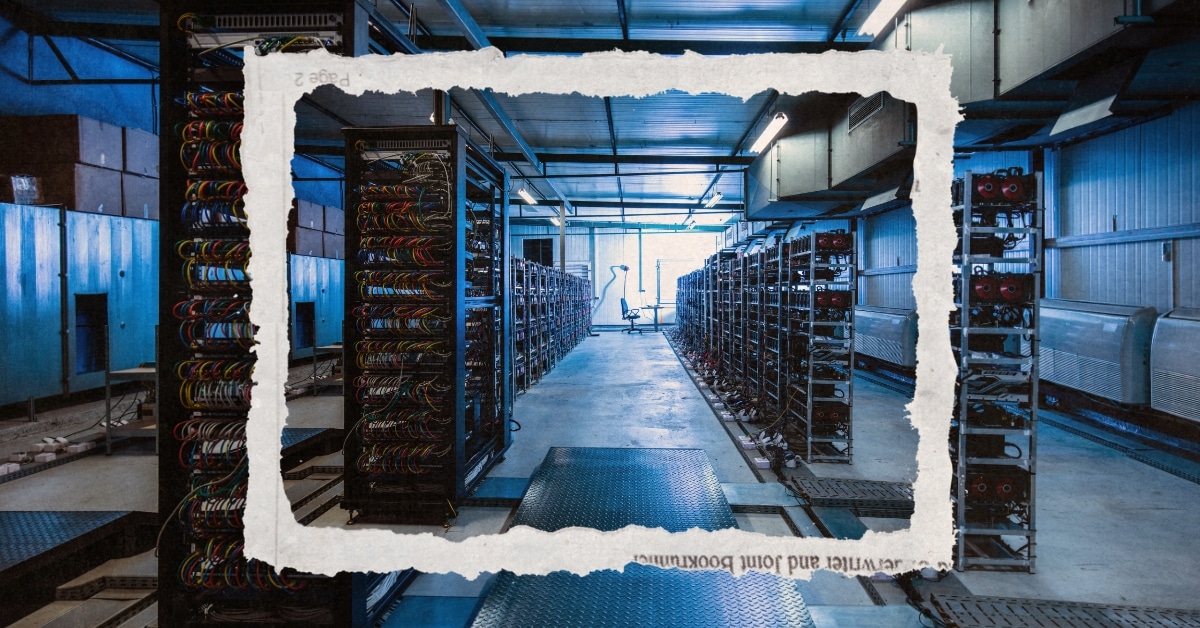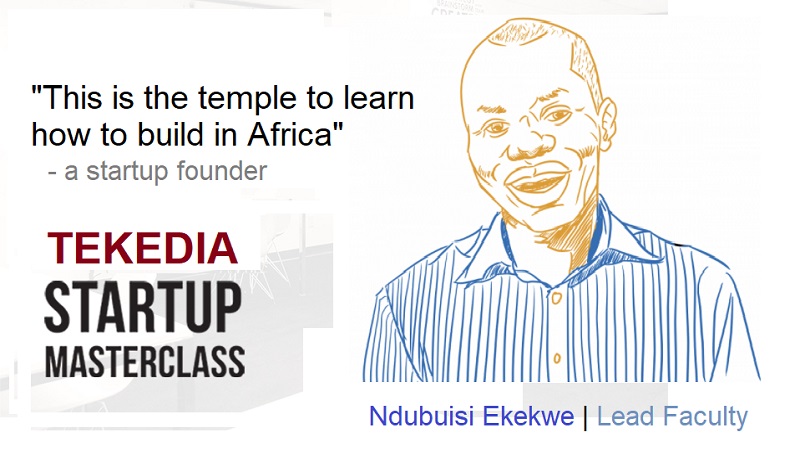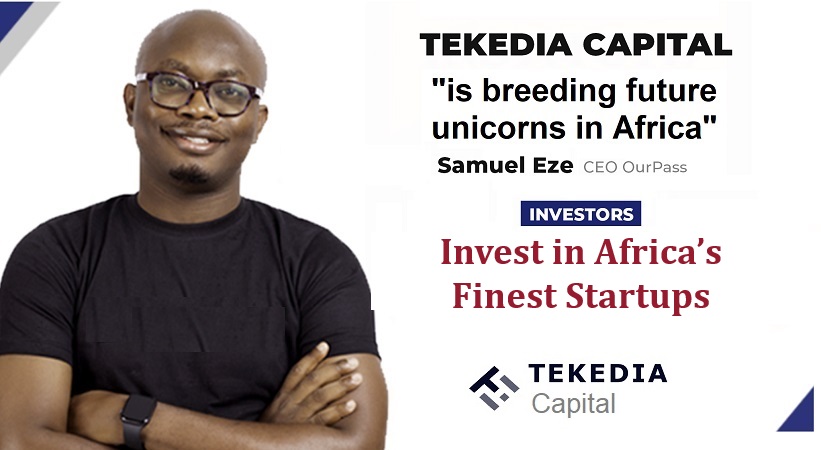News
Cryptocurrency is not the paradigm shift you’re thinking

Have you heard?
Donald Trump to speak at the Bitcoin 2024 conference. The Republican Party has included cryptocurrencies in its election platform.
Not too shabby.
Another US presidential candidate, Robert F Kennedy, Jr., has said he would use blockchain to improve governance and has proposed Bitcoin as an alternative currency.
That’s nice to know, but doesn’t that defeat the purpose?
Why should you use blockchain technology to manage a centralized entity? You only need blockchains to manage entities that do not share a common database or business process.
Why does it matter if the US government or any political party “approves” Bitcoin? Bitcoin is a non-governmental source of money. Anyone can use it.
I think the concept is not catching on. When people talk about cryptocurrency as a new paradigm, do they really know what that means?
The point is missing
A few months ago, a commentator argued that blockchain technology requires huge data centers, so we should invest in the data centers and everything needed to support them, not in the tokens themselves.
She missed a crucial detail.
If cryptocurrency worked as it should, there would be no need for data centers.
You will have access to vast, public, global networks of computing power provided by people and companies around the world, who use their resources and equipment in exchange for rewards.
You will have no opportunity to invest in real estate, commercial property, machinery and other things that support data centers.
Ordinary people will provide all of these things in exchange for compensation from these networks in the form of tokens (including, potentially, tokens pegged to national currencies).
You will have the opportunity to invest in these tokens, in the people who contribute to the network and in the companies that profit from its cryptocurrency, such as miners, developers, entrepreneurs, validators and all those who participate.
Not like the money you know
This isn’t the only paradigm cryptocurrencies will upend.
Baby boomers have become so accustomed to their government’s monopoly on money that they don’t know any other way. So-called monetary experts still think that money has intrinsic value or some innate property that makes it worth using.
We know that money is a social technology. Its value comes from social consensus. If enough people agree to use it, they will use it.
Whether such an agreement is reached because the government so dictates or by some other agreement, belief is more important than utility.
Shiny metal flakes? Pixels displayed on a screen? Writings in a ledger or images on scraps of paper?
Sure. Whatever gets you what you want.
The stories we tell ourselves
Some time ago, my son told me the story of “baby money.”
He said that a million years ago, someone dug orange dirt out of the ground and called it money. He let the money be used only by children. Then, when the children turned 18, they forgot about the money and how it got there.
Sounds familiar.
Many civilizations have had two sets of money: government money and common currencies. One form of money for the rulers, another for the people. One currency by decree, another by consensus.
Today’s economists believe this is unstable and unsustainable, but humans created vast empires, stable trade networks, and prosperity with these systems before the Fed was created.
Our money is a meme, an emotional connection to images and photos that quantify our wealth. It is a mirage, the product of financial engineering, supported by government edicts and collective nostalgia.
Try telling that to Billy the Neighbor. He’ll look at you funny and ask for a stock tip or a memecoin recommendation. He doesn’t know how money works. He just wants more of it.
This is what Wall Street is banking on. This is what politicians see.
You and I know that the opportunities offered by cryptocurrencies go far beyond.
Our money, not theirs
We don’t need to invent stories, get presidential approval, or argue about monetary principles. We need to design and iterate. Let the technology thrive or fail, and trust that people and markets can figure it out.
The Bitcoin network is self-financing. The protocol works without human intervention and no programmer can hack or take over the Bitcoin network.
Over time, some altcoins will also reach the same level of autonomy and relevance.
So you can have ETFs, bans, US government chokepoints, useless DeFi protocols, scams, Ponzi schemes, smart contract platforms, angry politicians, and greedy developers.
None of this changes the cryptocurrency’s fundamental value proposition:
Money for the people.
With Bitcoin you can send money to anyone, anywhere, at any time, in any amount, without restrictions, without revealing your sensitive personal data, without putting your property under the control of another person, with the certainty that your transaction will go through successfully and with the confirmation that every payment you receive is authentic and valid.
It works under all conditions, even when counterparties fail. It can sustain itself without political violence, military coercion, government manipulation, or sovereign debt.
Other cryptocurrencies exploit some or all of these features for different purposes, with the same result: everyone has access to all the tools of finance.
This is the investment opportunity.
A new type of printing machine
With cryptocurrency, you can choose who you associate with, how you associate, and the terms of your agreements. You don’t need to petition the government or declare war if you don’t get what you want.
You can simply create another protocol or implement a new smart contract.
Cryptocurrencies don’t need Wall Street to be safe or easy. Every failure, hack, and attack exposes a vulnerability that developers must fix. Every “cycle” brings more money and attention to the technology, its flaws, and how to fix its problems.
When using cryptocurrency, monetary power does not flow to those who can capture the hearts and minds of regulators. It flows to entrepreneurs, developers, and community members.
Now, we have Wall Street ETFs. Cryptocurrency commentators think they will attract a lot of money and attention. They seem willing to sacrifice their share of the world’s wealth in exchange for a fraction of what remains after the traditional financial system gets its share.
But Wall Street has a different plan. Its firms sell financial “picks and shovels” – access to financial markets.
Cryptocurrencies provide us with our pickaxes and shovels for free.
If you’re thinking of buying one of these ETFs, ask yourself:
Why would you want to invest a share of Blackrock’s success rather than your own?
Think smaller
This is the real paradigm shift.
With cryptocurrency, a teenager in Indonesia has as much power as the most prestigious financier in Manhattan. All you need is a laptop and an internet connection, and you can create a new monetary system that is global, permanent, and accessible on demand.
The sooner you understand this idea, the sooner you will realize that:
We have reduced the tools of finance into a format that you can carry anywhere and use anytime for any purpose.
And there is nothing any politician, financial company or government can do about it.
Originally published on https://mirror.xyz.
Mark Helfman publishes the Encryption is easy newsletter. He is also the author of three books and one of the best Bitcoin writers on medium AND Hacker noonFind out more about him in his biography and connect with him on Green algae.
News
US Cryptocurrency Rules Delayed by ‘Never-Ending’ Lawsuits

Ripple CEO says cryptocurrency industry still seeking regulatory clarity from US
Speaking to Bloomberg News on Wednesday (July 17), Author: Brad Garlinghouse he said America is behind behind other countries which have already adopted cryptocurrency regulations.
“What we’re seeing, where it’s the UK, Japan, Singapore… even the European Union, more than two dozen countries have come together to provide a framework for cryptocurrency regulation,” Garlinghouse said.
“It’s frustrating that we as a country can’t get that regulatory framework in place. And instead, we have this never-ending lawsuit coming from the SEC that doesn’t really address the problem.”
Ripple has been the target of some of these legal disputes. Securities and Exchange Commission (SEC) sued the company in 2020, accusing it of conducting a $1.3 billion operation offering of unregistered securities tied to its XRP token.
However, last year a judge ruled that only Ripple’s institutional sales of XRP, not retail sales, violated the law, a decision widely seen as a victory for the cryptocurrency industry.
As PYMNTS noted at the time, that ruling has “far-reaching repercussions impact across the digital asset ecosystem, which has long maintained that its tokens do not represent securities contracts.”
However, Garlinghouse told Bloomberg on Wednesday that the company cannot wage multimillion-dollar legal battles over each token.
He spoke to the news agency from the Republican National Convention in Milwaukee, where the party is backing the candidacies of former President Donald Trump and Ohio Sen. J.D. Vance, both of whom are considered pro-cryptocurrency.
But Garlinghouse argued that cryptocurrencies “should not be a partisan issue,” and noted that he had recently attended a conference in Washington that included Democrats, including White House officials.
“I think they were there, listening to the industry… it was refreshing to start having that conversation,” she said.
President Joe Biden earlier this year he vetoed a measure which would have ended the SEC’s special rules for crypto-asset custodians. This legislation was supported by both the digital asset industry and the banking industry.
Ripple early this year donated $25 million to the cryptocurrency industry’s super PAC Fair Smoothiewith Garlinghouse stating at the time that such donations would continue every year, as long as the industry had its detractors.
Second Open SecretsWhich monitor spending For campaigns, the PAC has spent $13.4 million this year, much of it to help defeat Rep. Katie Porter’s (D-Calif.) U.S. Senate campaign.
News
The Future of Cybersecurity in the Cryptocurrency Industry

The cryptocurrency space has had a tumultuous journey, with its fair share of ups and downs. As we look to the future, one area that remains a constant focus is cybersecurity. The digital nature of cryptocurrencies makes them inherently vulnerable to cyber threats, and as the industry evolves, so does the landscape of potential risks.
In 2022, the cryptocurrency market faced significant challenges, with over $2 trillion in market value lost. This event served as a wake-up call for the industry, highlighting the need for robust cybersecurity measures. The future of cryptocurrency security is expected to see a shift towards more regulated and established institutions taking the reins of crypto technology and blockchain infrastructure.
The decentralized nature of cryptocurrencies offers numerous benefits, such as transparency and financial inclusion. However, it also introduces unique security challenges. The risk landscape is filled with threats such as hacking, phishing, ransomware attacks, malware, and social engineering. These threats not only lead to financial losses, but also damage the reputation and trust within the cryptocurrency ecosystem.
Mini-MBA Tekedia edition 15 ((September 9 – December 7, 2024) started recordings; Register today for discounts reserved for early bird customers.
Tekedia AI in Business Masterclass Opens registrations Here.
Join the Tekedia Capital Syndicate and IInvest in Africa’s best startups Here.
The decentralized nature of cryptocurrencies offers many benefits, but it also presents unique security challenges. Cyber risks such as hacking, phishing, and ransomware pose threats to the integrity of digital assets. The infrastructure that supports cryptocurrencies is not immune to vulnerabilities, including smart contract flaws and exchange hacks.
To address these vulnerabilities, the infrastructure that supports cryptocurrencies must be strengthened. Smart contract vulnerabilities, exchange hacks, wallet breaches, and flaws in the underlying blockchain technology are significant concerns that must be addressed to ensure the security and integrity of digital assets.
As cybercriminal tactics and techniques become more sophisticated, the cryptocurrency industry must stay ahead of the curve. The future will likely see more targeted attacks, exploiting weaknesses in infrastructure, networks, and human factors. This requires a proactive and multifaceted approach to cybersecurity.
To mitigate these risks, several measures must be adopted:
Strengthening security measures: Developers, exchanges, and wallet providers must improve security protocols, use strong encryption, implement multi-factor authentication, and conduct regular security audits.
Education and awareness: Users should be educated on best practices for protecting their digital assets, including using strong passwords, recognizing phishing attempts, and using hardware wallets for secure storage.
Looking ahead, the cryptocurrency industry is expected to see an increased focus on robust security measures. Blockchain projects and exchanges are likely to invest in advanced encryption techniques and decentralized storage solutions to protect user assets. The future impact of cyber risk on cryptocurrencies will depend on the collective efforts of stakeholders to address vulnerabilities and strengthen security measures.
Collective efforts by stakeholders in the cryptocurrency space are crucial to address vulnerabilities and strengthen security measures. While challenges persist, advances in cybersecurity technologies and practices offer hope for a more secure and resilient cryptocurrency ecosystem.
The future of cybersecurity in the cryptocurrency industry depends on finding a balance between innovation and regulation. It requires a collaborative effort from all parties involved, from developers to end users, to create a secure environment that fosters trust and growth in the industry. As we move forward, it is critical that lessons learned from past events guide the development of stronger security measures, ensuring the longevity and stability of cryptocurrencies as a vital part of the modern economic toolkit.
Like this:
Like Loading…
News
Bullish XRP and RLBK price predictions rise, outpacing the broader cryptocurrency market, prompting Shiba Inu holders to switch!

Bitcoin’s one-week surge from $60,000 has pushed other cryptocurrencies into an uptrend. However, for many altcoins, this trend has been temporary. Altcoins such as XRP and Shiba Inu (SHIB) have experienced price drops. However, Rollblock, a new altcoin on the Ethereum blockchain, has thrived during this period, attracting thousands of investors looking for long-term growth.
XRP’s Nearly 30% Growth Over Last Week Drops as Selling Pressure Increases
XRP is seeing further price decline as Ripple investors withdraw their profits from the token. The surge in XRP’s price to $0.64 in the past week has provided investors with a perfect opportunity to increase their returns in the short term. With the ongoing sell-off in XRP, XRP has jumped over 8% in the past day and is now trading at $0.59. However, analysts tracking XRP indicators predict that XRP could still extend its gains by over 30% in the coming weeks.
Shiba Inu (SHIB) marks its third consecutive day of losses
Shiba Inu (SHIB) is in a period of adjustment after a week of strong gains. In the last 24 hours, SHIB has seen a jump of over 7%, reflecting a natural market fluctuation. Analysts are observing a death cross on the Shiba Inu chart, which historically signals the potential for future opportunities as the market stabilizes. As investors explore new possibilities, some are diversifying into promising altcoins like Rollblock (RBLK) to strategically rebalance their portfolios and capitalize on the emerging trend.
Rollblock (RBLK) Up Another 7% as New Investors Join Pre-Sale
Rollblock (RBLK) has taken the cryptocurrency market by storm, having attracted investors from more popular altcoins like Shiba Inu (SHIB) and XRP. Rollblock’s growth is attributed to its utility in the $450 billion global gaming industry.
Rollblock aims to use blockchain technology to bridge the gap between centralized and decentralized gambling. With blockchain technology, Rollblock secures every transaction in its online casino, providing transparency and convenience to millions of players who are uncomfortable placing bets on other iGaming platforms.
This innovative use of blockchain technology in the industry has grown Rollblock to over 4,000 new users in less than two months. With plans to add sports betting, this number is expected to grow exponentially in Q3.
Rollblock uses a revenue sharing model that splits up to 30% of its casino’s weekly profits with token holders. This happens after Rollblock buys back $RBLK from the open market and uses half of it for rewards. The other half is burned to increase the price of $RBLK.
Rollblock price has seen four increases in the past month with $RBLK tokens now selling for $0.017. Analysts predict that at the current growth rate, Rollblock could increase by over 800% before the presale ends. For investors looking for a long-term token with growth potential, phase four is the best time to buy Rollblock before its price skyrockets!
Discover the exciting Rollblock (RBLK) pre-sale opportunities now!
Website:https://Rollblockpresale.io/
Social: https://linktr.ee/Rollblockcasino
No spam, no lies, just insights. You can unsubscribe at any time.
News
Texas Crypto Miners Turn to AI as Crypto Declines

As cryptocurrency mining becomes less profitable, Texas cryptocurrency mining companies are switching to supporting artificial intelligence companies.
Bitcoin miners, with their sprawling data centers and access to significant energy resources, are ideally suited for computationally intensive AI operations, and as cryptocurrency mining becomes less profitable, companies see this shift as a logical answer to their problems.
On Thursday, Houston-based Lancium and Denver-based Crusoe Energy Systems announced a multibillion-dollar deal to build a 200-megawatt data center near the West Texas city of Abilene to support advanced artificial intelligence applications such as medical research and aircraft design, CNBC reported. The plant represents the first phase of a larger 1.2 gigawatt project.
Lancium and Crusoe’s move into AI mirrors a broader trend among bitcoin miners. The combined market capitalization of the top U.S.-listed bitcoin miners hit a record $22.8 billion in June. Companies like Bit Digital and Hut 8 are diversifying into AI, with Bit Digital securing a $92 million annual revenue deal to supply Nvidia GPUs and Hut 8 raising $150 million to expand its AI data center.
But the growing popularity of these operations also presents challenges, particularly for the Texas power grid. Last month, the Electric Reliability Council of Texas announced that the state is expected to nearly double its energy production by 2030 to meet the high energy demands of data centers and cryptocurrency operations.
Lieutenant Governor Dan Patrick expressed concern about the projections.
“Cryptocurrency miners and data centers will account for more than 50% of the additional growth. We need to take a close look at these two sectors,” He wrote on Twitter/X. “They produce very few jobs compared to the incredible demands they place on our network. Cryptocurrency miners could actually make more money selling electricity to the network than they do from their cryptocurrency mining operations.”
Analysts predict significant growth in data center power capacity, which is expected to account for up to 9% of U.S. electricity consumption by 2030.
The operations also pose challenges for nearby cities. Earlier this month, TIME reported that a crypto-mining facility was seriously compromising the health of residents in the city of Granbury. TIME reported more than 40 people with serious health problems, including cardiovascular disease, high blood pressure and hearing loss. At least 10 of the residents needed to go to the emergency room or an urgent care facility.
The disturbances were caused by the extreme noise generated by the crypto-mining facility’s fans, which are used to keep the machines cool. While the proposed data center in Abilene would use liquid cooling systems, it’s still unclear whether the facility’s operations would pose a health risk to local residents.
-

 Nfts1 year ago
Nfts1 year agoShardLab Launches ZK-Based Tool for Digital Identity and NFT Vouchers
-

 News1 year ago
News1 year agoWallet recovery firms are abuzz as stranded cryptocurrency investors panic in the bitcoin boom
-

 Bitcoin12 months ago
Bitcoin12 months agoBitcoin, Ethereum, Solana and Cryptocurrency Markets Look Ready to ‘Send’ as Stars Align, According to Investor Chris Burniske
-

 Altcoins12 months ago
Altcoins12 months agoThree Altcoins Poised for Significant Growth in 2024: ETFS, OP, BLAST
-

 Altcoins12 months ago
Altcoins12 months agoAccumulate these altcoins now for maximum gains
-

 Nfts12 months ago
Nfts12 months agoOG Crypto Artist Trevor Jones Unveils Groundbreaking Collection of Ordinals | NFT CULTURE | NFT News | Web3 Culture
-

 Bitcoin12 months ago
Bitcoin12 months agoBillionaires are selling Nvidia stock and buying an index fund that could rise as much as 5,655%, according to some Wall Street analysts
-

 Videos8 months ago
Videos8 months agoKamala just won the boner! [Bad For Crypto]
-

 Videos1 year ago
Videos1 year agoLIVE FOMC 🚨 Could be CATASTROPHIC for Altcoins!
-

 Videos1 year ago
Videos1 year agoSTOCK MARKET FUD! ⚠️ [Why This Is GREAT For Bitcoin Traders!]
-

 News1 year ago
News1 year agoA Guide for Newcomers & Beginners – Forbes Advisor
-

 Videos1 year ago
Videos1 year agoAttention: a historically significant BITCOIN signal has just appeared!







